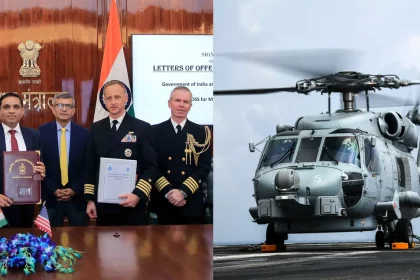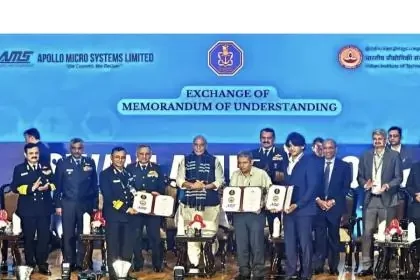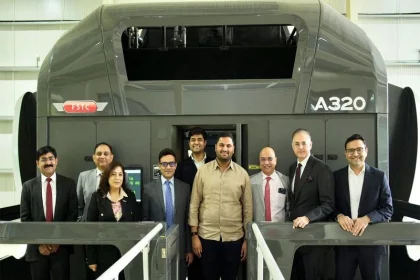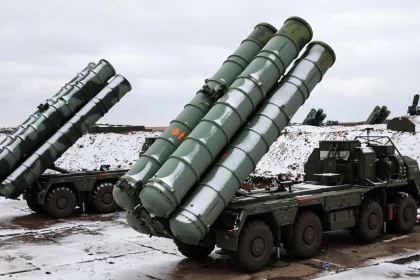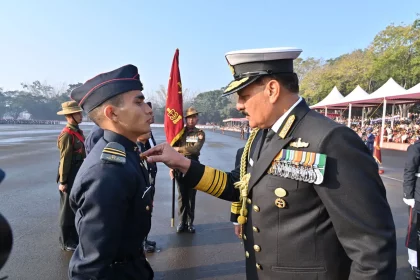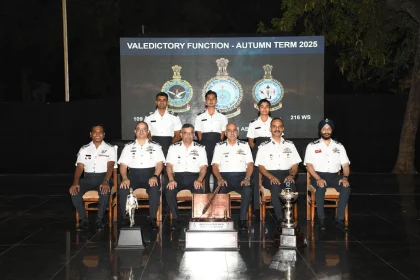India Signs ₹7,995-Crore Deal With US for Five-Year Sustainment of MH-60R Seahawks
India, US Seal ₹7,995-Crore Pact to Strengthen MH-60R Seahawk Fleet Sustainment.
Indian Navy Partners With IIT-Madras & Apollo Micro Systems to Accelerate Indigenous Armament Development
Indian Navy, IIT-Madras & Apollo Micro Systems Sign MoU to Develop Next-Gen Indigenous Naval Weapon Systems.
Adani Defence Acquires Majority Stake in FSTC in ₹820 Crore Deal, Boosts Pilot Training Capacity
Adani Defence Acquires Majority Stake in FSTC in ₹820 Crore Deal, Strengthens Aviation Training Ecosystem.
Centre to Procure 300 Russian Missiles to Replenish S-400 Systems
Move follows extensive S-400 deployment during Operation Sindoor.
Admiral Dinesh K Tripathi Reviews Grand Passing Out Parade of NDA 149th Course at Khetarpal Parade Ground
A magnificent display of discipline, precision and tradition marks the culmination of training for 329 graduating cadets.
Air Force Station Begumpet Hosts Valedictory Function for Advanced Navigation and Weapon System Courses
AVM Sanjeev Kumar Taliyan reviews parade, congratulates graduating officers on 29 November 2025.

